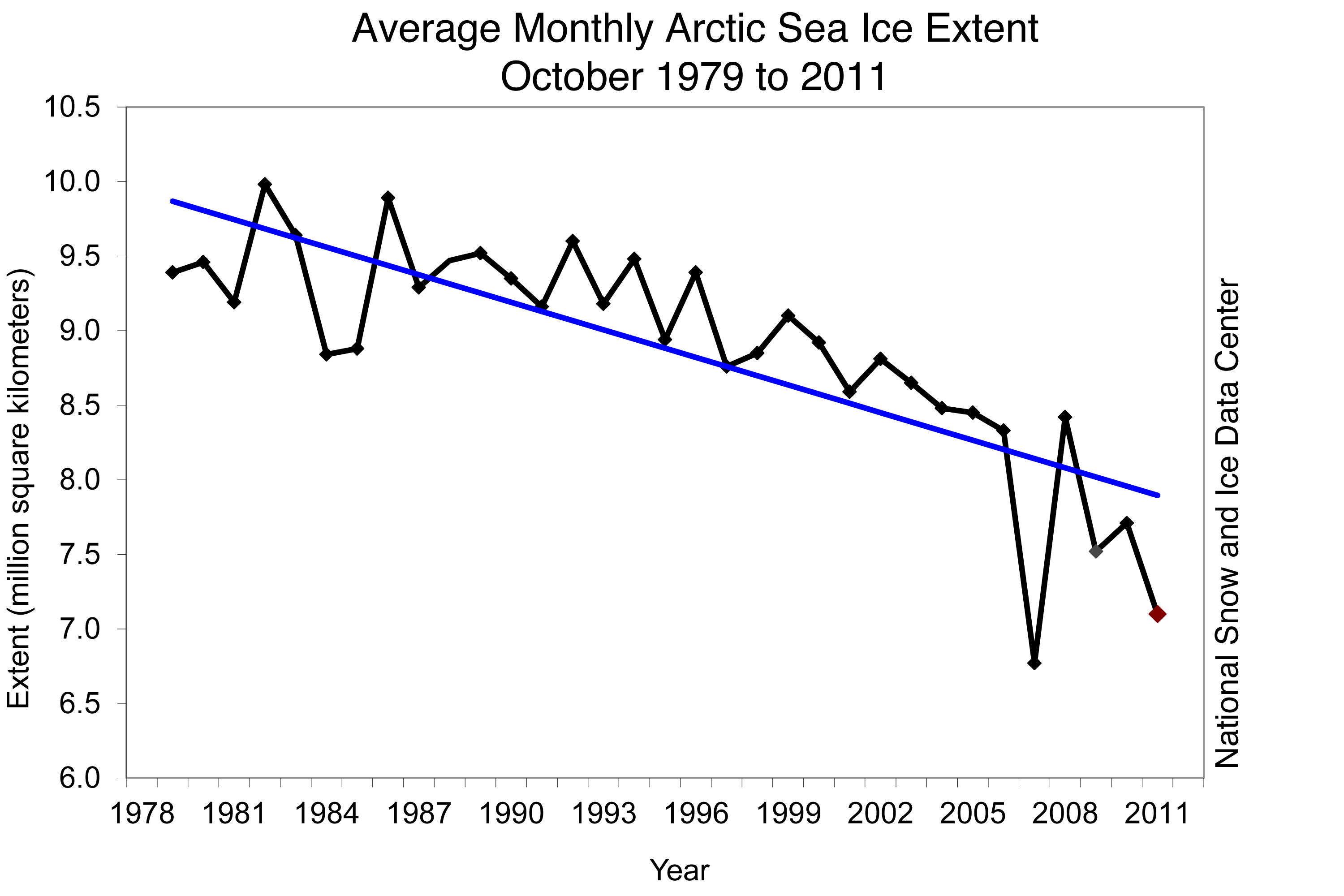If you read what I had said I made mention of them being at their lowest RECORDED level (since human records have existed) Not hypothetical or unobserved. Obviously they have been lower during other climate cycles and swings. There are also patterns that these pendulum swings take that cycle between ice ages and hotter extremes. We have definitely expedited this process. On a geological time frame it's supposed to happen gradually.
From:
https://nsidc.org/arcticseaicenews/
Also:
http://nsidc.org/sotc/sea_ice.html
Pine beetles from NASA:
http://www.nasa.gov/topics/earth/features/beetles-fire.html
Mountain pine beetles are native to western forests, and they have
evolved with the trees they infest, such as lodgepole pine and whitebark
pine trees.
However, in the last decade, warmer temperatures have
caused pine beetle numbers to skyrocket. Huge areas of red, dying forest
now span from British Columbia through Colorado, and there's no sign
the outbreak is slowing in many areas.
About Pine beetles:
http://www.for.gov.bc.ca/hfp/mountain_pine_beetle/faq.htm#2
- Cold weather kills the mountain pine beetle. Mountain pine beetle
eggs, pupae and young larvae are the most susceptible to freezing
temperatures.
- In the winter, temperatures must consistently be below -35 Celsius
or -40 Celsius for several straight days to kill off large portions of
mountain pine beetle populations.
- In the early fall or late spring, sustained temperatures of -25 Celsius can freeze mountain pine beetle populations to death.
- A sudden cold snap is more lethal in the fall, before the mountain
pine beetles are able to build up their natural anti-freeze (glycerol)
levels.
- Cold weather is also more effective before it snows. A deep layer of
snow on the ground can help insulate mountain pine beetles in the lower
part of the tree against outside temperatures.
- Wind chill affects mountain pine beetles, but is usually not sustained long enough to significantly increase winter mortality.
Is the mountain pine beetle
new to British Columbia?
No. Lodgepole pine and the
mountain pine beetle have always co-existed as a natural part of the
ecosystem in British Columbia’s interior forests.
Why is British Columbia in
the midst of a mountain pine beetle epidemic?
Forests of mature lodgepole pine
are prime habitat for the mountain pine beetle. The beetle also thrives
under warm weather conditions. The interior of British Columbia has an
abundance of mature lodgepole pine, and has experienced several
consecutive mild winters and drought-like summers. Beetle populations in
many parts of interior B.C. have increased to epidemic levels as a
result.
Is the mountain pine beetle a
threat to other provinces?
Scientists believe the mountain pine beetle is a tangible threat
to other provinces as jackpine, found across the prairies and
eastern Canada, is a potential host species for the beetle if
predicted climate change expands the range of the beetle.
You can't say that global warming and increased temperatures have nothing to do with pine beetle infestation, it simply isn't true.
